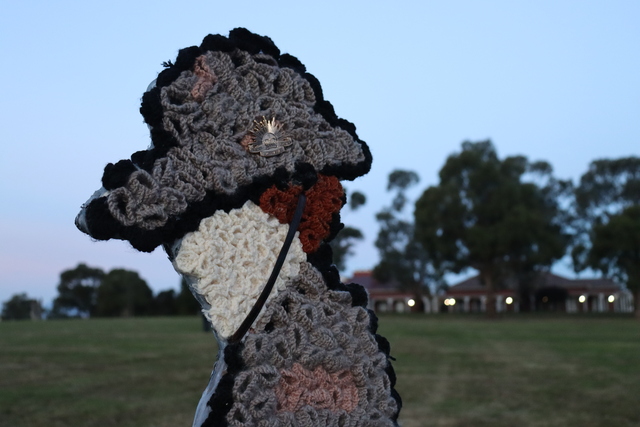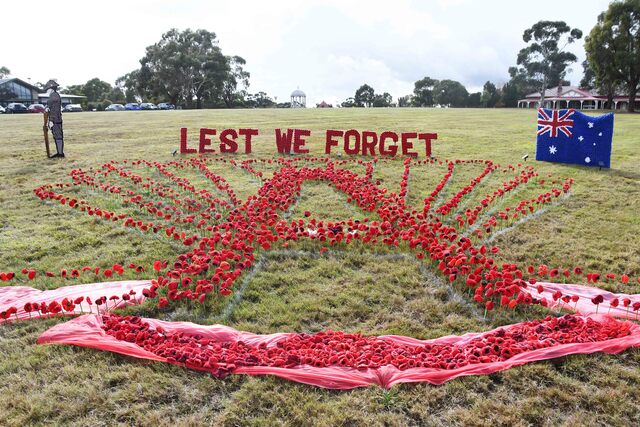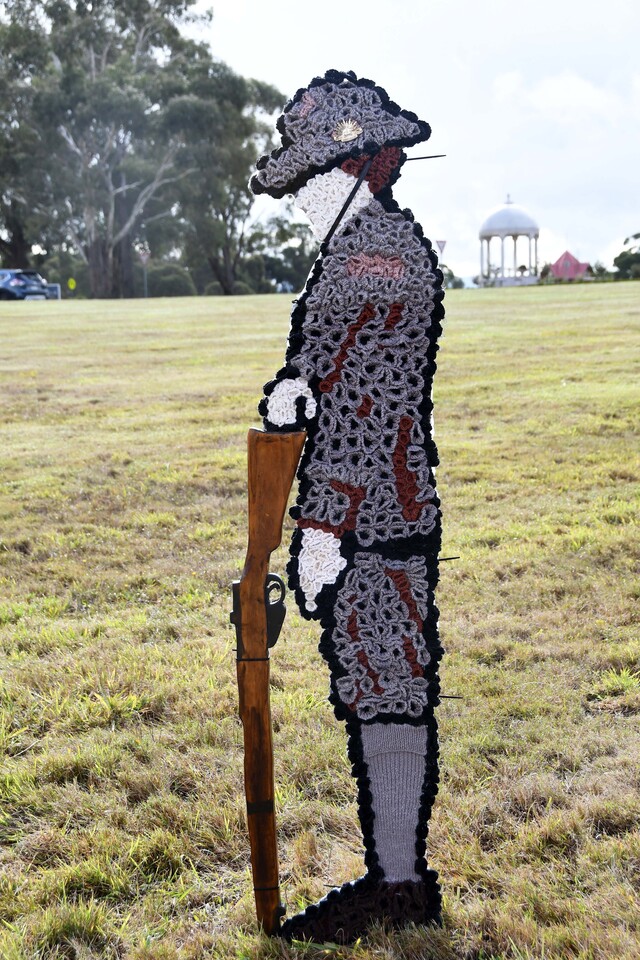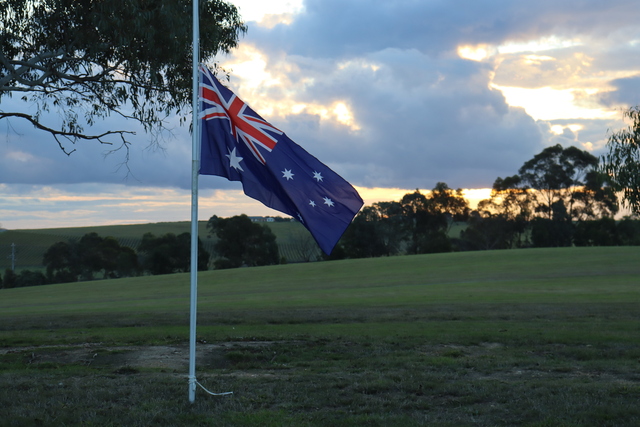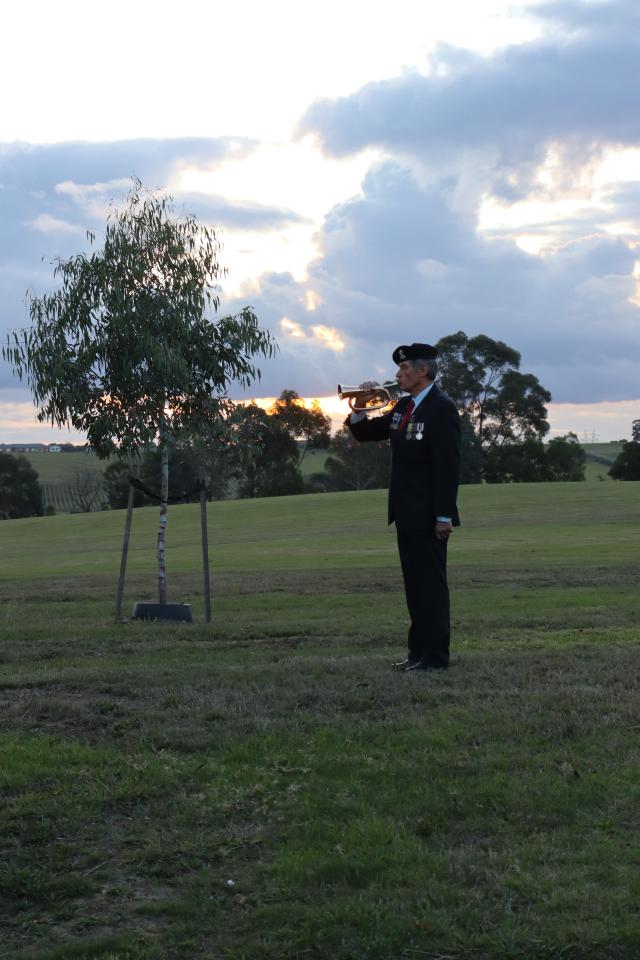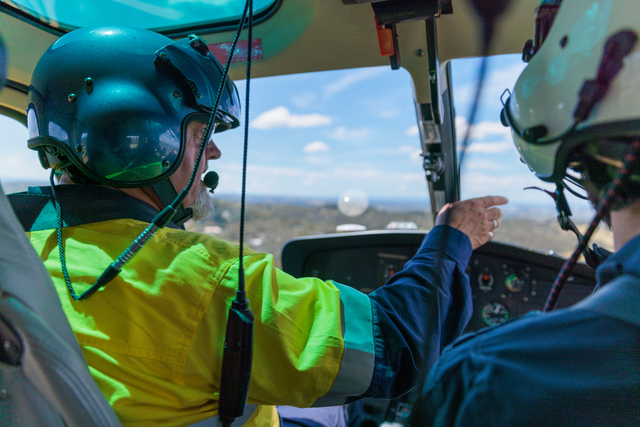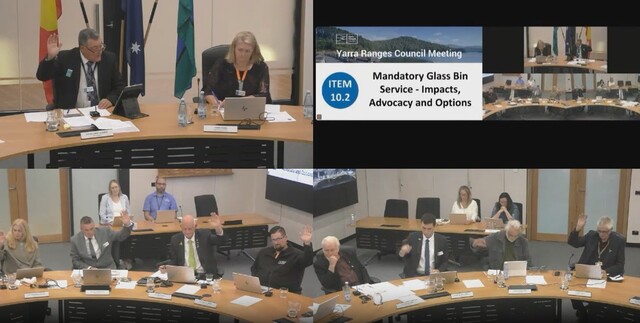Over 100 years have passed since the beginning of World War I but the memory of the Anzacs, particularly those who fought and died at Gallipoli remain in the hearts of many.
Remembering the soldiers who both died on the front and those who returned changed, a sunset gathering of the community at the Lilydale Memorial Park on Tuesday 16 April was a sign of respect in an early Anzac Day service.
This was the second time the Greater Metropolitan Cemeteries Trust (GMCT) hosted a commemorative service, with eastern region operations general manager Phil Snow thanking all those who recognised the importance of the service.
“Your attendance is a testament to the significance of the Anzac legacy and the ongoing acknowledgement of the sacrifices of the past,” he said.
“Most importantly, I welcome those here today and their families who have served and will continue to serve the name of our country. We say thank you.”
Honouring the stories of those who served in Gallipoli was a large feature of commemorations.
Civil celebrant Tracey O’Conner led the way, speaking of Major Vivien Benjafield who served as a surgeon in the Australian Army Medical Corps.
Major Benjafield was known for keeping detailed diary notes throughout his service and in the days leading up to the Gallipoli landing he wrote, “Apparently there is every prospect of this being a walkover for our troops, but we do not know.
“There may be a surprise in store for us for all we know, but it seems hardly likely that resistance will be very great.”
Treating the wounded and helping lay to rest the dead, Major Benjafield was invalided back to Australia in 1917, where he continued to treat patients and worked as a doctor in New South Wales. He died aged 94.
Several thousand soldiers weren’t so lucky, many succumbing to the rifle fire of the Turks and to the diseases present in the trenches.
“It was reported that one in three soldiers perished that very first day [of landing in Gallipoli]. The stories are only a glimpse into the devastation that our warriors faced,” Ms O’Connor said.
One of the many who died in combat was a Lilydale born and bred young man who prior to the war was an impressive scholar at Scotch College.
James Drummond Burns, 20, went to fight to protect his, Australia’s and England’s freedom but never made it home.
This year he was not only memorialised in story by historian Anthony McAleer but in knitted poppies, thanks to Sharon Chuck, who again helped organise a display at the memorial park.
A fellow student, Clifford Craig, described him as “a singularly charming and attractive personality. His quiet dignity, his kindly sympathy, his keen sense of humour, endeared him to a host of friends”.
Noted for his “philosophical mind” and “instructive conversationalist”, “the key note of his character was determination”.
Mr McAleer said from letters written about Jim Burns post-death, “he forged for himself a reputation as both an extraordinary student and an outstanding scholar”.
Despite being on the cricket, debating, and rowing teams, as well as leading as a prefect, Corporal Burns would be remembered for his contributions to the school magazine and his poetic prowess.
“The poems he wrote, 22 in number, were published in the magazine. He even composed a number of songs for school such as the boating song that is still sung by the rowing team at Scotch to this day.
“But it wasn’t only his achievements that made him outstanding. It was also his personality and his good nature.”
Completing his studies with first class honours, as well as numerous prizes, in 1914, Corporal Burns was granted a scholarship to Ormond College at the University of Melbourne.
“[But] he knew the Empire was in its hour of need. For him, there was no question as to what he should do. He had to do whatever it took to help England,” Mr McAleer said.
“Instead of going off to study at Ormond College, he decided instead to enlist in the ADF. A few weeks later, he was in Canberra and was allotted to the 21st Battalion.”
He was bid farewell by the congregation of the Presbyterian church in Lilydale where his father was the reverend.
Writing one last poem before he left for overseas, it would be this that would keep James Drummond Burns’ name alive.
“The poem that he wrote, would sum up his feelings for the reason why he had enlisted and would let everyone know, in a very emotive way, the important rationale as to why he believed we needed to be in the war. It was called ‘For England’,” Mr McAleer said.
Spending months in Egypt training before heading to the front at Gallipoli, Jim Burns survived a torpedoed ship attack to eventually land at the peninsula.
On 18 September 1915, “Corporal Jim Burns was on active duty when the enemy sent an artillery barrage down on them. Jumping up onto the top of the trench to return fire, he was shot in the head by a sniper.”
“He had only been at Gallipoli for 10 days and was the 21st Battalion’s first fatal casualty in this campaign. He was later buried in a makeshift cemetery in Shrapnel Valley.”
Mr McAleer said Jim Burns was just one example of a bright, young man who went off to war leaving behind an immense hole in what could have been an excellent future.
“In reality, though, the stark, tragic lesson of Jim Burns’ story is that of the theme of potential loss. What mark would he have made on Australian society? What further literary classics or scholarly works were we denied because of his death? What instrumental contributions or leadership could the adult Jim have given to his community?
“I don’t think there is any doubt that our nation was diminished as a result of his death. And it’s hard to tell what the full extent of the price we have all paid for the loss of young lives like Jim’s in that conflict.
“Jim was just one of 19,000 Victorians who perished in the First World War. All of them and all of us have been robbed but the contributions they could have made for our nation if they survived.”
As the sun went down over Lilydale Memorial Park, bugler Tom Steele played the last post and Lilydale RSL president Bill Dobson read the Ode.

